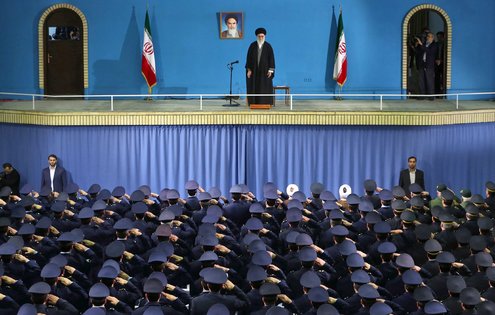WASHINGTON — At a moment when American negotiators say they see some signs of movement on the part of Iran toward a broad nuclear deal with the United States, the head of the United Nations nuclear inspection organization declared Friday that Iran had stopped answering the agency’s questions about suspected past efforts to design the components of a bomb.
The director general of the International Atomic Energy Agency, Yukiya Amano, said commitments Iran had made to provide more information on what he called “possible military dimensions” had not been carried out. He said that while he had received assurances from Iran’s president, Hassan Rouhani, that he was “willing to clarify the ambiguity” in documents and computer records that appear to show work on a variety of technologies that can be used to detonate a weapon, the cooperation had not been forthcoming.
“What is needed now is action,” Mr. Amano said, referring to a list of about a dozen issues that Iranian officials have declined to answer for years. Iran has argued that what has been described as evidence is fabricated, and that it has answered a sufficient number of questions.
Whether Iran is racing toward nuclear weapon capabilities is one of the most contentious foreign-policy issues challenging the West.

Mr. Amano’s comments pointed up a key question about the negotiations that American officials have been loath to discuss in public: In a final deal, would Iran be required to publicly admit its past activities, or merely provide a mechanism for monitoring its actions in the future? For years American and I.A.E.A. officials have insisted that Iran must provide access to the scientists and research and development sites that were the basis for intelligence reports that it had a fast-paced nuclear program until the end of 2003.
The United States concluded, during the Bush administration, that the program was dramatically slowed at the end of that year by order of the country’s supreme leader, Ayatollah Ali Khamenei, though low-level activities are believed to have continued.
Mr. Amano’s comments came as Secretary of State John Kerry, speaking to Al Hunt on “The Charlie Rose Show,” said Friday that he was preparing to enter “a slog” of negotiations in Oman next weekend, and in Vienna after that, in an effort to reach an agreement by the Nov. 24 deadline. “We’re closer than we were a week ago or 10 weeks ago,” he said. “But we’re still with big gaps,” and he said he feared that the Iranians would “get stuck in a tree of their own making, on one demand or another.”
Mr. Kerry, along with the American negotiators, talked at length about cutting off what he called “four pathways to a nuclear weapon.” Two revolve around the enrichment of uranium at the Natanz and Fordow plants; he called the latter “the secret underground facility,” though President Obama announced its existence in 2010, after it was discovered by American allies. The third is a plutonium production at the Arak heavy-water reactor, which the Iranians allege the West has tried to sabotage. And the fourth is cutting off pathways to a bomb that are still covert.
Mr. Amano noted in his speech that several of the facilities now under inspection were once covert. But he focused most of his attention on Iran’s reluctance to answer questions, based on intelligence provided by the United States, Israel and other countries and in some cases supported by the agency’s own findings, about suspected work on weapons designs. Mr. Amano, like his predecessor, negotiated with Iran on a schedule for answering the questions. And, like his predecessor, he has discovered that Iranian officials have dragged their feet.
“This is not a never-ending process,” said Mr. Amano, adding that he thought the issues could be resolved in a year or two. Mr. Amano, a former Japanese diplomat, would not commit to making public Iran’s answers about suspected military action. So far the Iranians have refused to allow the I.A.E.A. to interview leading scientists who ran the programs, including Mohsen Fakhrizadeh, identified by the United States and the United Nations as the leader of many of the covert design projects.
–
Source: http://www.nytimes.com/2014/11/01/world/middleeast/un-says-iran-is-silent-on-efforts-for-a-bomb.html?_r=0







